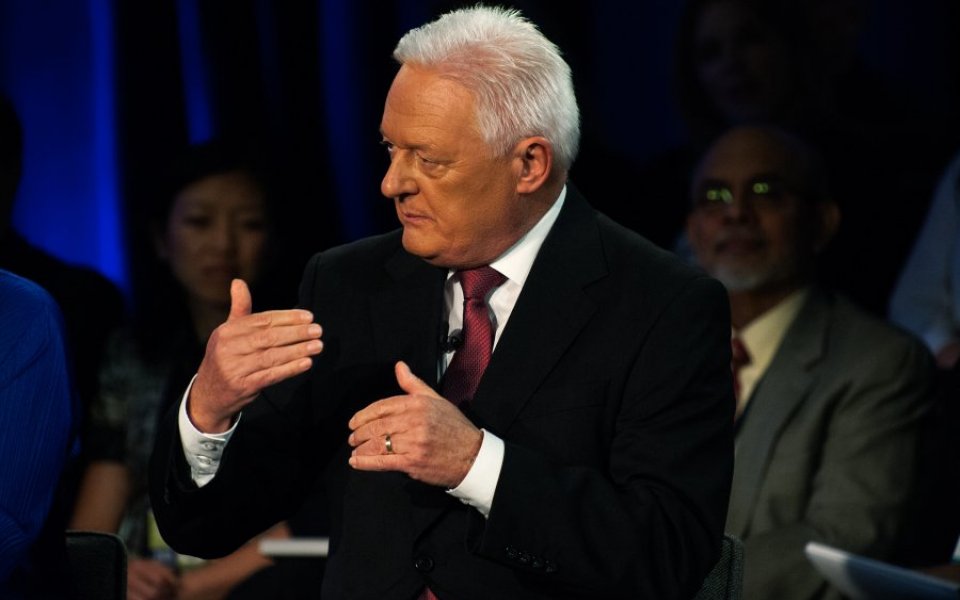Sense of deja vu engulfs Barclays boardroom over ringfencing waiver

When George Santayana uttered his famous quote about people who fail to learn from history being doomed to repeat it, he wasn’t thinking about Britain’s banks.
Shame: his words might echo pretty loudly around Barclays’ boardroom right now.
Little more than three years after the bank’s chief executive fell on his sword and its chairman made way for a reform-minded replacement, there is a strong sense of deja vu among Barclays-watchers.
How else to describe the “ringfencing” plan that would – for several years – see its retail operations directly owned by the group’s investment bank?
The proposal, Barclays’ chairman John McFarlane believes, is essential if its non-ringfenced bank is to avoid a junk credit rating as a standalone entity.
Yet it will be tantamount to an admission that the investment bank is not a sustainable independent entity. And it will not be a ringfence worthy of the name.
It would be understandable if the Prudential Sense of deja vu engulfs Barclays boardroom Regulation Authority (PRA) was alarmed at such a solution.
Efforts by Barclays to game regulators were far too frequent after the financial crisis because of an underlying assumption that its avoidance of direct taxpayer support gave it a licence to behave differently.
The motives may be different this time, yet insiders suggest that at a meeting of Barclays executives this month, there was a widespread sense that the bank would succeed in persuading the PRA to back its blueprint.
Given that Barclays is about to appoint another executive with an investment banking background as its next boss, there’s a dangerous sense of history repeating itself.
If the bank’s proposed restructuring doesn’t test the letter of the ring fencing rules conceived by Sir John Vickers and approved by George Osborne, it certainly plays fast and loose with their spirit. The PRA’s response will be fascinating.
HBOS’ BLAME GAME SHAME
How long should a blame game take? George Osborne may be demanding a “new settlement” for bankers and their overseers, but regulators haven’t even finished with the old settlement yet.
Theoretically, some closure will arrive with the imminent publication (yes, really) of the official report on the collapse of HBOS.
Nobody will come out of it with their reputation enhanced: auditors, supervisors and executives, all of whom were criticised in the Parliamentary Commission on Banking Standards’ inquiry two years ago, are braced for another dose of retribution.
Don’t get too excited, though: there’s unlikely to be much that enlightens us in the PRA’s report.
The main narrative about an over-extended and under-supervised corporate lending arm, and the freezing of wholesale markets, is well-rehearsed.
The bombshell revelations may come in the report written by Andrew Green, the barrister appointed by MPs to judge whether regulators should have taken enforcement action against executives other than Peter Cummings.
It’s hard to see how he can conclude that only one person was accountable for the decisions which led to a £20bn taxpayer bail-out. Or, in the new parlance unveiled last week, that everyone bar Cummings properly exercised their “duty of responsibility”. I’m not only referring to former HBOS executives.
Those who were responsible for regulating the bank must have their feet held equally close to the fire if the inquiry is to be credible.
There will be plenty of lessons about how not to run a bank emerging from next month’s report; but make no mistake, there will be lots of others about how not to run a banking inquiry.
LLOYDS’ £600M VISA
Any day now, Visa Europe will be re – united with its big sister, Visa Inc. For thousands of banks – and in particular, the big British ones – it will be a happy reacquaintance.
As shareholders in the European payments network, they are due to receive up to $21bn from its sale to its New York-listed counterpart.
Insiders say Lloyds Banking Group’s share of that sum is likely to be around £600m. Part of its Visa Europe shareholding is derived from the HBOS takeover.
Wouldn’t it be a worthy gesture if Lloyds decided to hand that windfall back to shareholders as a special dividend?